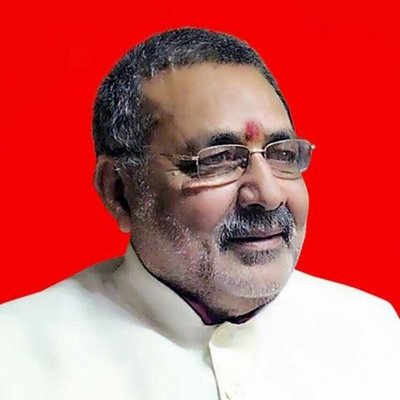Giriraj Singh Charts Cotton and MMF Roadmap at Textile Advisory Group Meeting
The event witnessed the convergence of stakeholders across all segments of the textile ecosystem, ensuring a holistic and inclusive dialogue.

- Country:
- India
In a significant move to revitalize India’s textile sector and align it with national strategic goals, Union Minister of Textiles Shri Giriraj Singh chaired a high-level meeting of the Textile Advisory Group (TAG) focused on Cotton and Man-Made Fibres (MMF). Held at Vigyan Bhawan in New Delhi, the meeting was aimed at reviewing the progress of key initiatives and laying down a path to strengthen the entire textile value chain, from farm to finished product.
The meeting was also attended by Minister of State for Textiles Shri Pabitra Margherita, Textiles Secretary Smt. Neelam Shami Rao, and senior officials from the Ministries of Textiles, Agriculture and Farmers’ Welfare, Commerce and Industry, the Office of the Textile Commissioner, and various Research Institutes, Industry Associations, and Textiles Committees. The event witnessed the convergence of stakeholders across all segments of the textile ecosystem, ensuring a holistic and inclusive dialogue.
Cotton Productivity Mission Takes Center Stage
Addressing the gathering, Shri Giriraj Singh highlighted the pressing need to enhance cotton productivity and quality to match the 5F vision of the Hon’ble Prime Minister — Farm to Fibre to Factory to Fashion to Foreign. The Minister stressed that India's cotton sector must scale up its production and processing capabilities to maintain its global competitiveness and improve incomes across the value chain.
He reiterated that innovation and collaboration must form the foundation of all future initiatives, especially those aimed at enhancing farm-level productivity, ensuring higher-quality fibre, and improving market access. The Union Minister also proposed a robust system of data mapping, which would enable more data-driven policy interventions. He urged for comprehensive gap analysis across the demand-supply spectrum to tailor policies effectively and minimize inefficiencies.
Vision 2030 and Industry Integration
Shri Pabitra Margherita, Minister of State for Textiles, echoed the Union Minister’s sentiments and called for cohesive action from all industry stakeholders to achieve Vision 2030. He emphasized the importance of:
-
Sustainability in cotton farming practices to improve soil health and long-term yields.
-
Adoption of technology in processing to reduce waste and enhance value.
-
Farmer-focused policies that not only boost productivity but also ensure fair remuneration through direct market linkages and traceability systems.
Margherita underscored the role of innovation in building a future-ready textile industry that is responsive to global demand trends while remaining rooted in Indian strengths.
Roadmap for Integrated Value Chain Development
In her remarks, Textiles Secretary Smt. Neelam Shami Rao urged the entire ecosystem — from cotton farmers to yarn manufacturers, fabric processors, and apparel exporters — to work in tandem to develop a comprehensive roadmap for the sector. She laid emphasis on:
-
Seamless integration across the textile value chain, especially between the cotton and MMF segments.
-
Deployment of advanced technologies such as precision farming, AI-led quality control, and digital tracking of fibre origin.
-
Establishing robust institutional mechanisms for policy implementation, industry feedback, and R&D collaboration.
The Secretary also proposed building regional textile clusters with strong backward and forward linkages to amplify local economic benefits and minimize logistical costs.
Industry's Response and Forward Outlook
Industry leaders present at the TAG meeting welcomed the government’s proactive approach. They lauded the emphasis on technology adoption, promotion of sustainable fibres, and efforts to strengthen farmer-industry linkages. Several stakeholders expressed their willingness to collaborate with government agencies on pilot projects, especially those focused on:
-
Scaling up Better Cotton Initiative (BCI) practices.
-
Promoting recycled fibres and circular economy models.
-
Enhancing traceability and certification mechanisms to improve global market acceptance.
The meeting concluded with a strong call for continued and consistent dialogue between the government and industry to implement the suggestions and recommendations deliberated during the TAG consultations.
A Unified Push Toward Global Textile Leadership
As India positions itself to become a global textile hub, the outcomes of the TAG meeting are expected to play a crucial role in shaping strategic policy directions. With its focus on cotton productivity, MMF integration, sustainability, and technological advancement, the Ministry of Textiles aims to foster a resilient, self-reliant, and export-oriented textile sector that significantly contributes to the nation’s economic and employment landscape.










